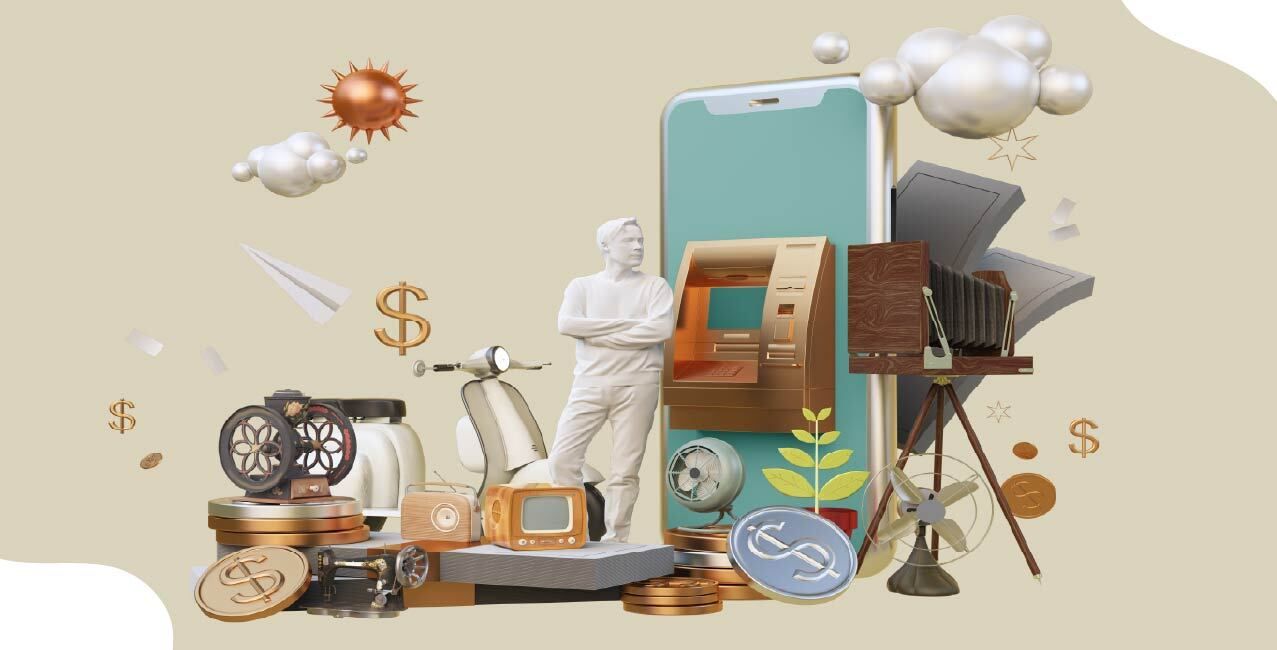
Author
LoansJagat Team
Read Time
6 Min
02 Sep 2025
What Is A Fungible Asset And Why Does It Matter In Trade?
Key Takeaways
- Fungible assets are the assets that you can easily interchange with other identical assets holding the same value and type. Three main qualities of fungible assets are: interchangeability, equal value, and identical units.
- Bonds, cryptocurrencies, cash, and gold are some common examples of fungible assets. Examples of non-fungible assets are baseball cards, cars, and diamonds.
- Fungible assets play a crucial role in trade, as they facilitate lower transaction costs, enhance liquidity, and facilitate price discovery.
A fungible asset is something that you can replace or exchange with another identical item of the same kind and worth. In simple words, if you have one unit of this asset, you can swap it for another unit without any loss or gain in value.
Suppose you have 10 notes of ₹500 (₹5,000) in cash. You swap your 10 notes of ₹500 (₹5,000) for someone else’s 2 notes of ₹2,000 and 10 notes of ₹100. So, you still have ₹5,000. The ₹5,000 you now hold is fungible because it is interchangeable with any other sum of ₹5,000.
In this blog, we will learn more about fungible assets and explore why they play an important role in trade and markets.
What Is Fungibility?
Fungibility means interchangeability without any change in value. Fungibility is essential in trade and finance for smooth and efficient transactions.
Imagine you have 125 shares worth ₹315 each. You can sell them without the need to identify the particular shares you give. Each share is the same as the next, making the trade simple.
What Makes An Asset Fungible?
An asset needs to have some quality to be qualified as a fungible asset. The following table highlights the qualities an asset must have to be called fungible:
Due to the above-mentioned qualities, fungible assets allow you easy and hassle-free exchanges.
Examples Of Fungible Assets
Many assets we use in our day-to-day life are fungible. The following table highlights some common examples that show fungibility in action:
The above-mentioned examples show how fungibility works in trade.
Why Do Fungible Assets Matter In Trade?
Fungible assets play an important role in making trade more efficient and cost-effective. Their interchangeable nature brings several advantages that benefit buyers, sellers, and the overall market.
The following table highlights the importance of fungible assets in trade:
The above-mentioned table highlights how fungibility makes trading quicker, more liquid, profitable, standardised, and transparent.
Fungible Vs Non-Fungible Assets
You must know that all assets are not fungible. Some assets are unique and cannot be exchanged equally. The following table shows a comparison between fungible and non-fungible assets:
From the above-mentioned table, you can clearly learn the difference between fungible and non-fungible assets.
Bonus Tip: Did you know that although gold is a fungible asset, an antique necklace made of gold with exceptional craftsmanship, historical significance, unique design, and irreplaceable cultural value is a non-fungible asset.
Conclusion
You must have understood by now that fungible assets make trading simple and efficient by allowing the easy exchange of identical items.
They reduce costs, save time, and help markets stay active and fair. Since these assets are interchangeable, buyers and sellers can trade confidently without worrying about differences in quality or value. This creates more opportunities for profit and clear pricing.
If you understand fungibility, then it will help you see why money, stocks, and many commodities trade so smoothly.
FAQs
1. Is sugar a fungible good?
Yes, as one kilogram of standard sugar is the same as any other kilogram of sugar.
2. Why are NFTs called non-fungible?
They are unique digital tokens that cannot be exchanged on a one-to-one basis like identical items.
3. Is time fungible?
No, as each moment is unique and cannot be swapped or replaced by another moment.
4. Are humans non-fungible?
Yes, since every individual has unique qualities and cannot be replaced by another person.
5. Why is all gasoline said to be fungible?
Gasoline is said to be fungible because any unit of standard-grade gasoline can replace another without loss of value or quality.
6. Is electricity completely fungible?
Electricity is mostly fungible since one unit of electricity is the same as another. However, factors like source or timing can affect its fungibility in some cases.
7. Is water fungible?
No, water is not fungible. Its availability and quality vary by location and time. So, one source of water cannot be directly substituted for another like identical commodities.
Other Related Pages | |||
Pros and Cons of Taking a Personal Loan for Crypto Investment | |||
About the Author

LoansJagat Team
‘Simplify Finance for Everyone.’ This is the common goal of our team, as we try to explain any topic with relatable examples. From personal to business finance, managing EMIs to becoming debt-free, we do extensive research on each and every parameter, so you don’t have to. Scroll up and have a look at what 15+ years of experience in the BFSI sector looks like.

Quick Apply Loan
Subscribe Now


